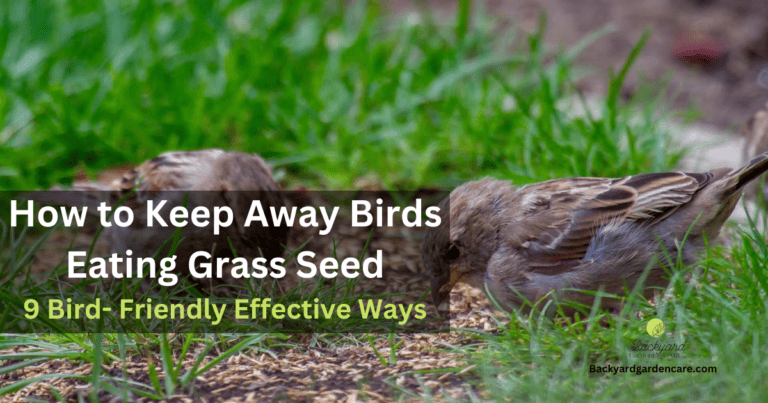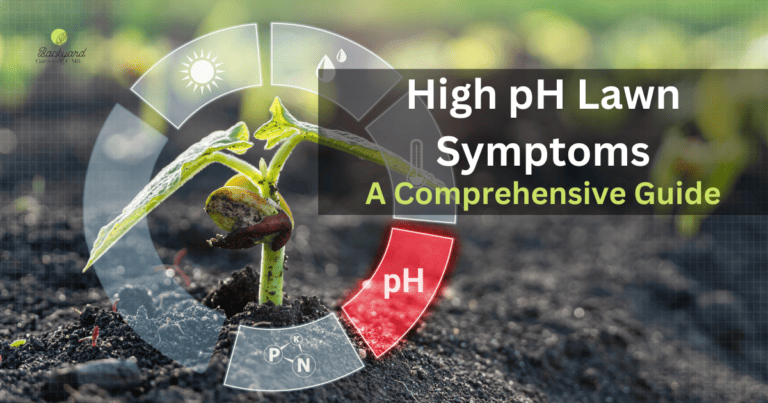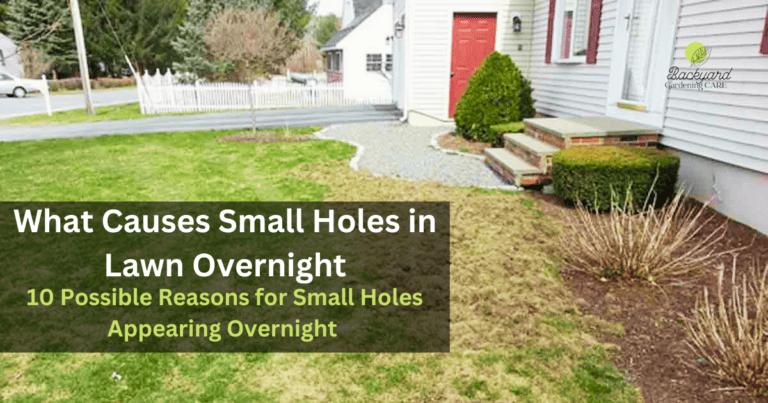How to Stop Bugs from Coming Up the Drain? 8 Things You Should Do If You See Bugs Coming Up The Drain.
Bugs and insects in the home can be bothersome, particularly when they begin to emerge from the drain. This not only looks bad, but it can also pose a health risk and lack of hygiene. Luckily, you can employ a variety of effective strategies to prevent bugs from entering your home through the drain.
By implementing these easy yet powerful methods, you can bid farewell to unwanted pests and keep your environment clean and bug-free. This article will explore the top techniques for How to Stop Bugs from Coming Up the Drain.
The Importance of Preventing Bugs: How to Stop Bugs from Coming Up the Drain?
The Importance of Preventing Bugs in Your Drains When maintaining a clean and healthy home, the drains are often overlooked.
We tend to associate bugs with outdoor spaces like gardens, backyards, indoor-outdoor patios living areas, or forests, but did you know that bugs can also find their way into your drains? Yes, that’s right.
Your drains can become a breeding ground for unwanted pests if not properly maintained. Here, we will discuss the importance of preventing bugs in your drains and provide some tips on keeping them bug-free.
1. Health Risks: Bugs in your drains can pose serious health risks for you and your family. There is a possibility that they can carry bacteria, germs, and other harmful pathogens, which could cause your home to become contaminated and possibly cause illnesses as a result.
For example, cockroaches are known to carry various diseases, including salmonella, dysentery, and more. By preventing bugs in your drains, you are taking a proactive step towards protecting the health and well-being of your loved ones.
2. Odor Control: Another reason to keep bugs out of your drains is to maintain a pleasant-smelling home. Bugs are often attracted to the organic matter that accumulates in drains, such as food particles.
As they feed on this debris, they produce foul-smelling waste, which can result in a persistent odor in your home. By preventing bugs in your drains, you can avoid these unpleasant smells and create a more inviting living space.
3. Preventing Infestations: Bugs, especially small ones like drain flies or fruit flies, can quickly multiply and turn into an infestation if left unchecked. Once they establish a breeding ground in your drains, getting rid of them becomes much more challenging. Prevention is key to avoiding these infestations and extermination’s associated hassle and cost.
Which Kind of Bugs Come Out of Drains?
Drains are an essential part of our homes, responsible for carrying wastewater away from our sinks, showers, and toilets. However, these dark and damp spaces can also become a breeding ground for various pests and bugs.
You may have noticed some insects emerging from your drains, leaving you wondering what kind of bugs they are and how to deal with them.
This section will explore the common types of bugs that come out of drains, each with its reasons for being there. Let’s explore some of the most frequently encountered drain bugs:
Fruit Flies

Fruit flies are minuscule insects that can become quite bothersome, particularly around kitchen drains. True to their name, these pests are drawn to ripening fruit and ageing vegetables, utilizing them as a feeding source.
Unlike many other pests, fruit flies have a peculiar habit of laying eggs inside fermenting food. This provides nourishment for their larvae once they hatch. Unlike many other pests, fruit flies are constantly active.
These relentless creatures rarely sleep, constantly buzzing around the organic matter. Even if you maintain a spotless kitchen, you may still encounter fruit flies, as they could be residing and feeding in your garbage disposal.
Drain Flies

Drain flies are a prevalent pest that is often found in the vicinity of open drains. These small insects are quick to establish their nests in damp spaces, and their reproductive capabilities are nothing short of impressive.
One drain fly is capable of laying over 100 eggs within just two days, resulting in a large swarm of drain flies rapidly forming.
Upon closer inspection, drain flies bear a resemblance to moths due to their small wings and fuzzy bodies. However, unlike moths, they are incapable of flying. Instead, these flies can hop from one location to another, ensuring their mobility and survival.
Sewer Roaches
Sewer roaches, also known as cockroaches, are a common nuisance that can be found living in drains. These persistent pests have a knack for finding their way into our homes, often making appearances in the most inconvenient places, like our bathroom floors.
It’s common to spot a roach wandering around that we suspect came through the sink or tub drain. What makes drains so appealing to these bugs? Cockroaches are naturally drawn to dark and damp spaces; open drains provide the perfect nesting grounds.

Our drainage systems’ pipes are often coated with organic fungi and food particles, serving as a feast for these unwelcome guests. They are attracted to these remnants and gather around the drains, making it their home.
However, the real trouble begins when they start to breed. Once cockroaches find a cozy spot to settle, they waste no time establishing a nesting ground within your drainage system. This means that the number of roaches can quickly multiply, turning a small problem into a full-blown infestation.
The consequences of having sewer roaches in your home can be quite alarming. Not only can these pests cause damage to your walls, but they can also contaminate your living space with their feces and larvae. This can pose serious health risks.
water Bug
The water bug is often mistaken for the cockroach due to its similar appearance. However, they have distinct characteristics that separate them from the cockroach. Unlike common roaches, water bugs have a preference for swimming in the water. are water bug bites or causes diseases?
Whether you live near a lake or tend to leave puddles of water after showering, it is likely that you will be infested with these pests if you live near a lake or leave puddles of water.

Water bugs and roaches have several characteristics that make them very different from one another, including their behaviour when they feel threatened. Water bugs, commonly referred to as “toe biters,” have a tendency to bite if they perceive a threat.
So, if you happen to invade their space and get a little too close, be prepared for a bite on your toes. While water bugs do not seem to be as persistent as roaches, they prefer to live outdoors around bodies of water because they are more active when near water.
However, if they come across a damp spot in your home, they can quickly make their way there by making use of their wings. It is important to note that water bugs are not just a nuisance but can also pose health risks.
They are known carriers of various pathogens and can contaminate food and surfaces with bacteria. Therefore, taking preventive measures to keep them out of your living space is crucial.
To discourage water bugs from entering your home, it is advisable to eliminate any standing water sources, such as puddles or leaky pipes. Additionally, ensuring proper drainage around your property can help reduce the likelihood of these pests finding a suitable habitat on your premises.
Fungus Gnats
Fungus gnats may appear harmless due to their small size, but they can quickly become a significant issue if you neglect to clean your pipes effectively. There is no doubt that these tiny insects are attracted to mold, fungi, and moist soil, which makes it easy for them to gather around house plants.

It is difficult to locate all of them in your home because of their size, which makes it difficult to determine where they are and eliminate them, giving them plenty of time to multiply throughout your home.
It is essential to immediately take action to exterminate these flies because if they are allowed to make themselves comfortable in damp soil, it will be much more difficult to control and monitor their movements as they migrate.
Now that we know what kind of bugs can come out of drains, let’s discuss some preventive measures you can take to keep them at bay.
What Causes Bugs to Live in Drains?
Bugs are often found living in drains due to a few key reasons. One of the main factors that attract bugs to drains is the abundance of food and the ability to hide out of sight.
Drains provide a valuable food source for bugs, often containing small residues of decomposing material and fungi. Undoubtedly, we don’t pay much attention to the garbage and hair follicles that go down our drains, but bugs, on the other hand, find them an unlimited food source.
Clogged or backed-up drains can contain small residues of decomposing material and fungi, a delicacy for bugs. All it takes is one bug to be attracted to the scent and settle down in the drain.
The bugs will continue feeding on the drains if they remain uncleaned, even forming colonies before us. This is why it’s important to regularly clean and maintain our drains to prevent bugs from making it their home.
Dealing with pests in drains can be a frustrating experience, but understanding why bugs are attracted to drains can help us take proactive measures to prevent infestations.
Regularly cleaning and maintaining drains can minimize the availability of food sources, making them less appealing to bugs. Furthermore, using drain covers or traps can help prevent bugs from entering the drains in the first place.
What to Do if You See Bugs Coming Up the Drain
How to Stop Bugs from Coming up the Drain Dealing with bugs is never a pleasant experience, especially when they start making their way up your drain.
If you’re tired of dealing with this nuisance, fear not. This section will explore effective methods to stop bugs from coming up the drain and reclaim your peace of mind.
1. Identify the Attraction: Understanding why bugs are drawn to drains is the first step in preventing them from entering your home. There are many important reasons why drains are ideal for the growth of bugs, including the presence of moisture, food particles, and organic material, such as decayed organic matter. These factors create a perfect breeding ground for insects like cockroaches, flies, and drain flies.
2. Keep your drains clean: Maintaining cleanliness is one of the most effective ways to prevent bugs from entering the drain. It is important to regularly clean your drains with a drain brush or a plunger to get rid of hair, soap scum, and food particles.
Make sure to regularly clean your drains using a drain cleaner or a mixture of baking soda and vinegar. This will help eliminate any organic matter that may attract bugs and provide them with a breeding ground.
4. Ensure any cracks and crevices in your home are sealed: Bugs are notorious for finding their way into even the tiniest spaces. Take the time to inspect your bathroom and kitchen for any cracks or crevices around the drain area. Use caulk or sealant to seal off these entry points, leaving no room for bugs to squeeze through.
5. Use natural deterrents: Some natural substances can repel bugs and discourage them from entering your drain. Citrus peels, such as lemon or orange, can be placed near the drain openings to deter bugs with their strong scent. Additionally, essential oils like peppermint, eucalyptus, or tea tree oil can be diluted with water and sprayed in the drain area to repel bugs.
6. Opt for natural pest control: If you’re dealing with a persistent bug problem, consider using natural pest control methods. Diatomaceous earth, for example, is a safe and non-toxic substance that can be sprinkled around drains to kill bugs on contact. Furthermore, boric acid can be used to create a homemade insecticide that targets bugs without posing a risk to humans or pets. Cedarcide and Wondercide are two well-known natural pest control solutions, So whether you’re dealing with Bugs, fleas, ticks, mosquitos, or other unwanted pests, this will help you decide which pest control solution is right for your home lawn and Drains.
7. Keep the drain area dry: Bugs thrive in moist environments, so keeping it dry can help discourage their presence. After using the sink or shower, wipe down any excess moisture and ensure that there are no leaks or standing water. This will make your drain less appealing to bugs searching for a water source. Similarly, if you have a wet home lawn or yard, it’s essential to dry up your lawn and yard to save it from bugs and mosquitoes.
8. Consult a professional: If you’ve tried all the above methods and the bug problem persists, it may be time to seek professional help. An expert in pest control will have the knowledge and tools to address more severe infestations and will be able to provide tailored solutions to your specific bug issue.
Following these tips can effectively prevent bugs from coming up the drain and invading your living space. Remember, consistency is key when it comes to bug prevention, so make sure to incorporate these practices into your regular cleaning routine. Say goodbye to unwanted visitors and enjoy a bug-free home once again.

What to Pour Down Drain to Kill Bugs
Dealing with bugs in your home and lawn can be a frustrating experience. In my personal experience, I’ve found that a mixture of equal parts vinegar and water is an effective solution to pour down drains to help kill bugs and deter their presence.
The strong acidic properties of vinegar make it a potent bug deterrent, and this simple DIY remedy can be used regularly to maintain a bug-free environment. Additionally, if you have a wet home lawn or yard, ensuring it stays dry is crucial to warding off bugs and mosquitoes. By taking these steps, you can enjoy a bug-free home and lawn more comfortably.
Pour Bleach Down the Drain to Kill Bugs.
When it comes to choosing the right drain cleaner, there are a few options that stand out. One of the top choices is bleach. This powerful substance can be poured down the drain and mixed with lukewarm water to create a potent disinfectant.
However, it’s important to note that bleach should never be used in conjunction with other cleaners, especially those that contain ammonia. Mixing bleach with certain household cleaners can inadvertently produce toxic gas, posing a serious health risk.
Because bleach contains harmful chemicals, it is extremely important to exercise caution and avoid using bleach immediately before or after using any other cleaning product.
By following these guidelines and choosing the appropriate drain cleaner, you can effectively eliminate bugs and roaches from your pipes, promoting a cleaner and healthier home environment.
Vinegar
Vinegar is a versatile household item that can be used for various purposes, including bug control. Its strong acidic properties make it a potent bug deterrent. To use vinegar to kill bugs, simply pour a mixture of equal parts vinegar and water down your drain. This will help eliminate any bugs present and prevent them from returning. Additionally, vinegar is also the best option to get rid of ground moles if you have them on your home lawn.
Borax
Borax is not just an effective solution for eliminating pests but also a dependable cleaning product that can effectively clear your drains and remove rust.
The combination of borax and boiling water allows you to easily flush out any bugs or roaches that may have taken up residence in your drain due to it being overrun by them.
There is no doubt that this powerful combination works wonders when it comes to eliminating these unwanted creatures, leaving your drains clean and free from any unwanted pests.
Additionally, borax is a safe and natural alternative to harsh chemicals, making it an ideal choice for those who prefer eco-friendly cleaning solutions. Its effectiveness in pest control and its ability to tackle rust make it a versatile and practical product to have on hand in your household cleaning arsenal.
So, if you’re looking for an efficient and non-toxic way to address pest issues and maintain the cleanliness of your drains, consider using borax with boiling water for optimal results.
Baking Soda and Vinegar
When combined, baking soda and vinegar create a powerful foaming reaction to help eliminate bugs in your drain. To start the process, pour a cup of baking soda down the drain and then pour a cup of vinegar down the drain.
Let the mixture sit for a few hours to allow the foaming action to break down any organic matter that may be attracting bugs. Finally, flush the drain with hot water to clear out the debris.
Ammonia
Ammonia is a highly effective disinfectant that is commonly used to eliminate bugs. Its water-solubility makes it convenient to use by mixing an equal amount of ammonia with water and pouring it down the drain.

This method ensures thorough disinfection. Moreover, ammonia proves to be very efficient in combating roaches. For instance, keeping some ammonia in a spray bottle allows you to address any roaches quickly.
Because of its powerful properties, it can effectively eliminate roaches on contact thanks to its strong properties. Nevertheless, any products containing bleach should never be mixed with ammonia. Following this advice, you can safely and effectively use ammonia as a disinfectant and roach killer.
Conclusion
Stopping bugs from coming up the drain is a task that can be achieved with a few simple steps. Regularly cleaning and maintaining your drains, using drain covers or stoppers, and implementing natural deterrents such as vinegar or essential oils can prevent bugs from accessing your home through the drain.
Additionally, addressing any underlying plumbing issues and sealing cracks or gaps around pipes can further enhance your efforts in keeping bugs at bay. If you implement these strategies, you can enjoy a bug-free environment, maintain a clean and hygienic environment, and avoid bugs coming out of bathtub drains.
FAQs
What Can I Pour Down My Drain to Prevent Bugs?
To prevent bugs from infesting your drain, you can pour a mixture of boiling water and vinegar down the drain. The hot water helps flush out bugs or eggs, while vinegar is a natural insect repellent.
Additionally, you can use bleach, Ammonia and regularly cleaning your drains with a mixture of baking soda and vinegar can help to keep them free from insect activity. However, it is important to note that for severe bug infestations, it is recommended to seek professional pest control assistance.
What Are the Tiny Bugs Coming Out of My Drain?
The tiny bugs coming out of your drain are likely to drain flies, also known as moth flies. These small insects are commonly found in damp and decaying organic matter, such as the sludge that builds up in drains.
Drain flies are attracted to the moist environment and organic debris in your drain, where they lay their eggs. To get rid of these bugs, you can start by thoroughly cleaning your drains and removing any buildup.
How Do I Keep Bugs Out of My Bathroom?
There are several ways to keep bugs out of your bathroom
1. Seal gaps or cracks around windows, doors, and pipes to prevent bugs from entering.
2. Install window screens to prevent bugs from flying through open windows.
3. Keep your bathroom clean and dry, as bugs are attracted to moisture and food particles.
4. Empty the trash regularly and ensure it has a tight-fitting lid.
5. Use a drain cover to prevent bugs from entering the pipes.
6. To deter bugs, consider using natural bug repellents, such as essential oils or vinegar.
7. Keep bathroom doors closed when not in use to limit bug access.
8. Regularly inspect and clean any bathroom vents or exhaust fans to prevent bugs from nesting.
9. If plants are in your bathroom, ensure they are not overly moist and check for any signs of pests.
Do Bugs Come from the Drain?
Yes, bugs can come from the drain. Drains provide a moist and dark environment, attracting insects like cockroaches, gnats, and drain flies.
Albert Phipps

Hello, I’m Albert Phipps, your trusted professional gardener. I have a deep passion for nurturing nature’s beauty, With years of experience in landscaping. I’m dedicated to creating lush, vibrant gardens and outdoor spaces.
If you’re seeking guidance on plant selection, grass care, pest control products, garden design, or lawn maintenance tips, don’t hesitate to get in touch. I’m here to help you transform your outdoor space into a thriving and serene landscape.







